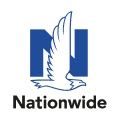Nationwide is the best and cheapest renters insurance provider in North Carolina, with a MoneyGeek score of 94 out of 100. It offers $20K in personal property coverage at an average annual premium of $66.
Although it is the best overall, the best rates and providers depend on your needs. For example, USAA is the top choice for veterans.







